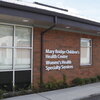Book urgent care & walk-in clinics near me in Grand Mound, WA
Own a clinic? Add your location.
Help patients book appointments with you on Solv. It's free!
6 instant-book locations

MultiCare Indigo Urgent Care, Tumwater
MultiCare Indigo Urgent Care

MultiCare Indigo Urgent Care, Lacey
MultiCare Indigo Urgent Care

MultiCare Indigo Urgent Care, Olympia
MultiCare Indigo Urgent Care

Mary Bridge Children's Urgent Care, Olympia (KIDS ONLY)
Mary Bridge Children's Urgent Care

MultiCare Indigo Urgent Care, Yelm
MultiCare Indigo Urgent Care

MultiCare Indigo Urgent Care, Hogum Bay
MultiCare Indigo Urgent Care

Multicare Indigo Urgent Care, Olympia Occupational Medicine
Multicare Indigo Urgent Care
Valley View Centralia Clinic
Valley View Centralia Clinic
Woodland Urgent Care
Woodland Urgent Care
Littlerock Family Medicine
Littlerock Family Medicine
Providence Lacey Immediate Care
Providence Lacey Immediate Care
Sea Mar Community Health, Olympia Medical Clinic
Sea Mar Community Health
Concentra Urgent Care, Lacey
Concentra Urgent Care
Sea Mar Community Health, Lacey Medical Clinic
Sea Mar Community Health
Sea Mar Community Health, Thurston County Walk-In Medical Clinic
Sea Mar Community Health
Kaiser Permanente, Olympia Urgent Care
Kaiser Permanente
Providence ExpressCare, Lacey Marketplace
Providence ExpressCare
Sea Mar Community Health, Yelm Medical Clinic
Sea Mar Community Health
Summit Pacific Urgent Care
Summit Pacific Urgent Care
Sea Mar Community Health, Elma Medical Clinic
Sea Mar Community Health
Own a clinic? Add your location.
Help patients book appointments with you on Solv. It's free!
Discover Grand Mound Healthcare with Solv
Solv simplifies your search for healthcare in Grand Mound by seamlessly connecting you with urgent care and walk-in clinic options. With Solv, you can easily locate nearby clinics, access their ratings and reviews, view their hours of operation, and directly book same-day appointments with trusted providers. Our platform offers convenient features such as saving your appointment history for instant re-bookings and tracking your health insurance usage and deductible. Whether you're seeking care for sudden illnesses or minor injuries affecting you, your family, or your children, Solv streamlines the process by allowing you to filter by insurance acceptance, pediatric services, and current availability.
What to Expect with Your Visit
When you seek urgent care in Grand Mound, anticipate an efficient process designed to address your health concerns. For the best experience, it’s important to properly prepare for your visit and understand the likely expectations once you enter the clinic.
Preparing for Your Visit
A successful urgent care visit starts with good preparation. Here's how you can get ready:
- Where possible, book a visit online with Solv to save time waiting in the clinic
- Bring your ID, insurance card, and an accepted method of payment
- List your current medications, allergies, and any chronic conditions you may have
- Prepare a brief description of your symptoms and concerns, including their onset
- Think of any questions you might have for the healthcare provider
During Your Visit
You'll receive immediate attention from skilled healthcare professionals at the urgent care center focused on promptly diagnosing and treating your condition. Expect:
- A brief wait, depending on the clinic's volume and whether or not you booked ahead with Solv
- Check-in by providing your ID, insurance, reason for your visit, and completing initial registration paperwork
- A consultation with a healthcare provider to discuss your symptoms and medical history
- Possible diagnostic tests (e.g., X-rays or lab tests), if needed
Treatment may include prescriptions, wound care, or other immediate interventions.
Following your visit, ensure you understand home care instructions or medication usage. You might also receive referrals for specialist care or requests for follow-up visits to monitor your condition. Communication with your healthcare provider is key, so don't hesitate to reach out with any post-visit questions or concerns.
Urgent Care FAQs
What is urgent care?
Urgent care is a healthcare service focused on providing immediate, non-life-threatening medical attention. Urgent care centers treat conditions such as sprains, cuts, burns, and common illnesses and offer a range of services, including diagnostic and preventive care like immunizations and physicals. With an estimated 15,000 clinics in the U.S., urgent care centers operate beyond traditional primary care office hours, offering a convenient and lower cost alternative to emergency rooms for urgent but minor health issues.
What is a walk-in clinic?
A walk-in clinic is a type of healthcare facility that provides medical care to patients without the need for an appointment. These clinics cover a range of services such as urgent care, occupational medicine, and primary care with walk-in availability. They cater to non-emergent health issues, offering a convenient option for accessible medical attention. Walk-in clinics vary from free services provided by government, charity, or foundation-operated facilities to private clinics with affordable rates, serving as a practical alternative for minor illnesses and injuries outside of traditional doctor's offices and emergency rooms.
Do urgent care centers in Grand Mound take appointments?
Historically, urgent care centers were strictly an on-demand, walk-in healthcare service. More recently, as consumer behaviors and expectations have evolved, many urgent care clinics have begun offering book ahead visits, allowing consumers to select a same-day or next-day time that works best for their schedule. Use Solv to find a Grand Mound urgent care center that offers advanced bookings (or appointments) and book online.
Are Grand Mound urgent care centers open after hours?
Yes. Most primary care doctor offices are open during routine work hours, Monday thru Friday, 9:00 am to 5:00 pm. Conversely, most of the urgent care centers in Grand Mound are available after hours, on weekends, and many holidays. Typical urgent care hours are 8:00 am to 8:00 pm daily, although location-specific hours may vary.
How much will an urgent care visit in Grand Mound cost?
The cost of a visit to an urgent care in Grand Mound varies, with cash prices for the base visit generally ranging from $100 to $175. Additional treatments, such as lab tests, X-rays, or immunizations, can increase costs, typically between $50-150 each. If you're using insurance, expect a co-pay between $20 and $50, depending on your plan and whether the clinic is in-network. Prices differ based on location, so it's best to check directly with the urgent care center and your insurance provider for accurate cost estimates.
Related Searches
Drug Test in Grand Mound, WA
A1C Test in Grand Mound, WA
Ear Wax Removal in Grand Mound, WA
Pregnancy Test in Grand Mound, WA
Sports Physicals in Grand Mound, WA
STD Testing in Grand Mound, WA
DNA Test in Grand Mound, WA
Blood Test in Grand Mound, WA
Lab Tests in Grand Mound, WA
Diabetes Test in Grand Mound, WA
Flu Test in Grand Mound, WA
Basic Metabolic Panel in Grand Mound, WA
Diagnostic Test in Grand Mound, WA
Cholesterol Test in Grand Mound, WA
Glucose Test in Grand Mound, WA
CMP Test in Grand Mound, WA
Allergy Testing in Grand Mound, WA
Strep Test in Grand Mound, WA
TB Test in Grand Mound, WA
Urinalysis in Grand Mound, WA
Vitamin D Test in Grand Mound, WA
H Pylori Test in Grand Mound, WA
Mono Test in Grand Mound, WA
Pulmonary Function Test in Grand Mound, WA
RSV Test in Grand Mound, WA
Thyroid Test in Grand Mound, WA
Pediatric Urgent Care in Grand Mound, WA
COVID-19 Pill in Grand Mound, WA
COVID-19 Testing in Grand Mound, WA
Dermatologists in Grand Mound, WA
Hepatitis test in Grand Mound, WA
Aetna Urgent Care
Blue Cross Blue Shield Urgent Care
Cigna Urgent Care
COVID-19
Flu
United Health Urgent Care
» All services in Grand Mound, WAFind urgent care
Nearby cities
Everyday Healthcare, Simplified
Expert advice to help you live your best life







